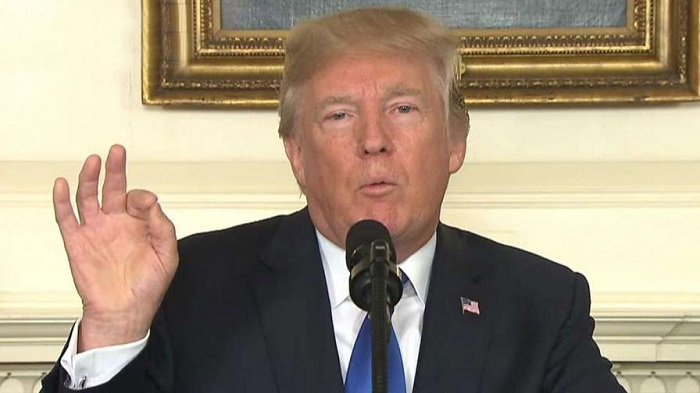Trump’s Speech Is Not the End of the World for Iran

By: Sabbah Zanganeh
Donald Trump’s Friday night speech in which he decertified Iran’s compliance to the JCPOA followed one key objective: to increase pressure on Iran and trigger a new wave of Iranophobia in the Middle East. When it comes to regional affairs, Iran should naturally fine-tune its relations with those states in the region with which it has closer ties. These policies should revolve around prevention of any new tension.
In the meantime, Iranian policymakers should be aware that Washington’s withdrawal from the nuclear deal or decertification of Iran’s compliance is not the end of the world and Iran’s interaction with its neighbors should continue powerfully and within the framework of national interests. While JCPOA is an international agreement which enjoys support from the UN Security Council, it has the capacity to solve Iran’s problems partially, but not the entire array of its diverse problems. The world is also revolving around a unipolar, US-based order anymore and Iran can find many points of interest overlap with other countries, including even the US. Blowing Trump’s actions out of proportion underlines a lack of understanding of the new dynamics of international relations.
The US president is facing challenges inside his own country, with US’ neighbors, and with global powers. Unlike the age of Obama, Saudi Arabia and Israel may now assume more leeway to launch a psychological warfare against Iran, but they may not trigger a new round of serious confrontation. Riyadh is now under serious economic pressure and is trying to create a delay in Iran’s economic progress and development. But that is the limit for Riyadh. Israel is also struggling with deep internal challenges and seeks every opportunity to escape isolation.
In this context, Trump’s attitude towards JCPOA can even backfire and pave the way for Iran’s stronger influence on regional affairs. With a realistic, yet innovative attitude, Iran can find the optimal chemistry that maximizes influence and minimizes Iranophobia, particularly at a time when Iraq and Syria are rooting out ISIS and moving towards stability, while Qatar and Turkey are wary about policies of Saudi Arabia and the United States. These developments have created a temporary alignment with Iran’s policies among these countries, which of course should be handled with care, since they may not last for long.
* This piece was originally published in the Reformist daily Shargh. Sabbah Zanganeh is a Middle East affairs analyst.

